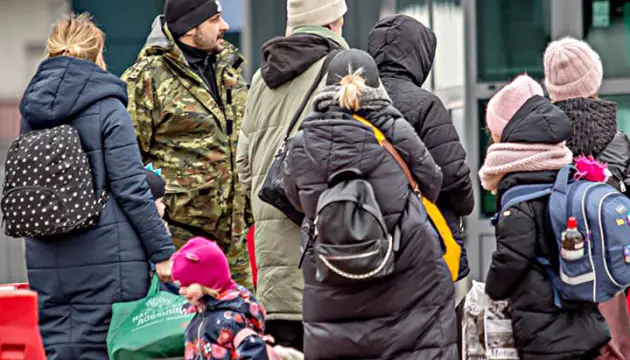The United Nations, UN, said Thursday more than 14 million people had fled their homes in Ukraine during the two years since the Russian invasion, with nearly 6.5 million now living outside the country as refugees.
Reflecting on the February 24 second anniversary of the full-scale invasion, the UN’s International Organization for Migration (IOM) said that in addition to the refugees abroad, some 3.7 million people remain displaced within Ukraine.
Over 4.5 million people have returned home to date, from either abroad or displacement within the country.
In total, more than 14 million people — nearly one third of Ukraine’s population — have fled their homes at some point during the war.
“The destruction is widespread, loss of life and suffering continues,” IOM director general Amy Pope said in a statement.
“IOM commends the government of Ukraine and the Ukrainian people for their strength and resilience, as well as Ukraine’s neighbours who are taking in those seeking safety. We remain fully committed to alleviating human suffering and helping recovery.”
The United Nations agency said it had supported 6.5 million people in Ukraine and across 11 countries in eastern Europe hosting refugees.
“As the war enters a protracted phase, however, needs continue to grow and outpace available resources,” the agency said.
In the first two years of the conflict, the IOM has received $957 million in donations.
“We count on increased support from donors and local partners to meet the challenges that lie ahead in providing a better life for Ukrainians,” said Pope.
The Russian invasion was the biggest of a European country since World War II and triggered the largest refugee crisis the continent has faced since the 1939-1945 conflict.
The United Nations overall says it needs $4.2 billion this year to provide humanitarian aid in Ukraine and to refugees who have fled but fears a likely shortfall as the Gaza war dominates global attention.
Of those who fled and have now returned to their homes, “many have encountered lasting challenges… including insecurity, loss of livelihoods, damaged housing and infrastructure, and strained services”, said Soda Federico, director of the IOM’s humanitarian response and recovery department.
“We must focus on economic recovery,” he said in the agency’s report on the first two years of the war. (AFP)
Related posts
Categories
- Advertisements (1)
- Agriculture (45)
- Breaking News (26)
- Business (598)
- Crime (991)
- Education (320)
- Entertainment (128)
- Features (13)
- For The Records (43)
- Foreign News (1,190)
- Health (219)
- Home News (332)
- Interview (9)
- Judiciary (352)
- Lifestyle (140)
- Local News (111)
- National News (1,448)
- Opinion (26)
- Politics (1,014)
- Religion (157)
- Science and Technology (125)
- Security (684)
- Sports (881)
- States' News (822)
- Transportation (330)
- Uncategorized (10)

